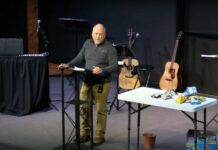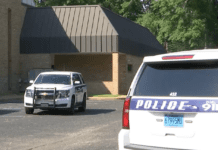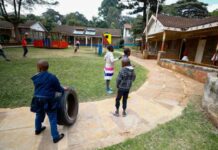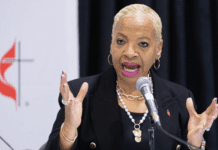More than a quarter (28%) of Black people who regularly attend services said their congregations should be closed due to the pandemic, compared to 9% of white people and 14% of Hispanic Americans. Similarly, fewer African American congregants (30%) said they were “very confident they can attend safely,” compared to 36% of Hispanic attendees and 53% of white attendees.
Asked about any continuing racial divide among megachurches and smaller congregations, sociologist of religion Scott Thumma said, “My sense is that there is greater hesitancy among mostly mainline churches, as well as Black and Latino churches that have been disproportionately impacted by the virus and have had less access to vaccines.”
Thumma, whose Hartford Institute for Religion Research recently received a $5 million grant to study COVID-19 and its effect on congregations, said most African American megachurches he has researched have started meeting in person while also holding online worship services. But some smaller congregations in his area of Connecticut have not started in-person gatherings.
The Rev. Kip Banks, pastor of a Washington, D.C., church and a senior consultant for Values Partnership who works with Black pastors across the country, said his church, which returned to offering in-person services in September, has about 200 active members, with about 70 attending online each week and about 40 to 50 in person.
“Even for those that have gone to hybrid format, the majority of worshippers are still online, and you find that across the board,” said Banks, pastor of East Washington Heights Baptist Church. “The church has to make a major adjustment to online worship. It’s with us to stay.”
Though some Black churches are shuttered for in-person worship, they have often continued other rituals and traditions beyond Sunday morning. Wesley said he has officiated at about a dozen weddings since the pandemic started, in locations such as museums and art districts, though most have been postponed. And he said his church has conducted a few funerals, requiring families to determine which 50 people can attend the service — and there’s a “different kind of feel” with required mask-wearing and social distancing. Wakes are held in the narthex, just inside the doors of the church, instead of in the sanctuary.
“We only allow one family in at a time while we do that,” he said.
Richardson said his church, at the height of the pandemic, was giving away food to 500 families a week and still aids a few hundred each Wednesday, having turned a building on its property into a storage and distribution facility.
“The African American churches have been centers for distribution of food, vaccinations and testing,” he said. Even at a time when they haven’t been able to be open for worship services, “they’ve become real centers of service in the community.”
This article originally appeared here.











